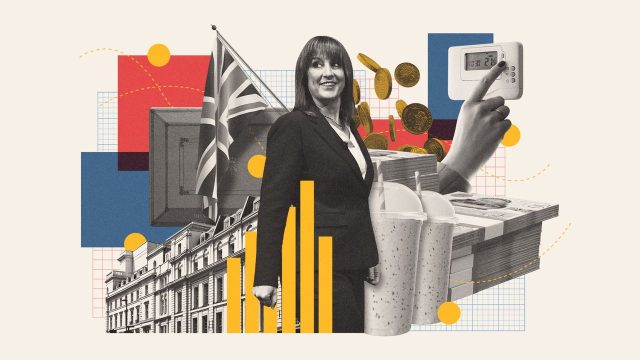
After months of speculation, Rachel Reeves has finally delivered her long-awaited Budget but not before she was upstaged by the Office for Budget Responsibility (OBR) releasing their growth forecast two hours early by accident.
The “extraordinary” error, said the BBC’s economics editor Faisal Islam, meant “all the policies and all the market critical fiscal numbers” were released before Reeves had said anything in the House of Commons.
With the chancellor already facing criticism for her handling of the lead-up to the Budget, the OBR leak “robbed her of the chance to set the tone and the credibility to be heard”, said Times Radio’s Kate McCann on X. “While not her mistake it may not matter in the minds of many.”
Reeves for her part admonished the OBR for the leak, before telling the Commons: “I will not return Britain back to austerity, nor will I lose control of public spending with reckless borrowing. And I will push ahead with the biggest drive for growth in a generation.”
The need to maintain her strict fiscal rules, keep her spending commitments and not break Labour’s tax pledges left Reeves relying on a “smorgasbord” of revenue-raisers that she hopes will be enough to keep Labour MPs, the markets and voters onside.
Here are five key changes the chancellor set out today:
Freeze to income tax thresholds
Having backed down from a manifesto-busting rise to income tax, Reeves’ “biggest money-raiser” will be extending the freeze on tax thresholds for another two years until 2030, said The Times. Maintaining the basic-rate threshold of £12,570 and the higher-rate threshold of £50,270, will hit millions of workers and pensioners through “fiscal drag”, said the paper.
It is nevertheless a “stealthy but valuable move” that will raise around £8 billion, said George Eaton in The New Statesman.
Increase in minimum wage
From April the minimum wage will rise for over-21s by 50p to £12.71 an hour. Workers aged 18-20 will receive a bigger 85p increase to £10.85, while under-18s and apprentices will now get £8 an hour.
This should be “one of the easier-to-sell retail offerings to the public, along with easing energy bills and freezing prescription costs and rail fares”, said Politico’s London Playbook, but it has garnered criticism from “unlikely quarters”. Businesses big and small were “always going to be concerned about the chunky hike (particularly for the under-21s)”, but so too is the left-wing Resolution Foundation think tank, which has warned it risks “causing more harm than good” if it suppresses youth employment.
Mansion tax
A new property tax will be imposed on homes worth more than £2 million through a revaluation of council tax bands F, G and H. This so-called “mansion tax” could see those with the most expensive properties in the UK face council tax bills of more than £6,000 a year, said The Times, and “if implemented, would mark a radical departure from the way we buy and sell homes – and have a lasting impact on the wider economy”.
The changes will, however, prove popular with large sections of the public as well as Labour MPs, with one minister telling The New Statesman: “Everybody knows it doesn’t make sense that a terraced house in the north of England pays more council tax than a mansion in central London”.
Limit salary sacrifice and tax-free ISA schemes
There will be a reduction in the amount that can be saved in tax-free cash ISAs for the under 65s from £20,000 to £12,000 “in a bid to get households investing more in UK stocks”, said Bloomberg. A £2,000 annual cap will also be introduced on the amount workers can put into their pensions under “salary sacrifice” schemes without paying national insurance. At the moment there is no limit and the change “would mean any contributions above the cap would be subject to NI payments by both employees and employers”, said the BBC. The move is set to raise a “whopping £4.7 billion”, said Sky News’ Sophy Ridge, “which shows how many people will be impacted by this”.
Combined with the two-year freeze in income tax thresholds, the tax raid on pension contributions will leave a “middle-class family with two earners facing a £1,600 hit” over two tax years, said The Times.
Scrapping the two-child benefit cap
Introduced by the Conservatives in April 2017, the controversial cap prevents parents from claiming universal credit or tax credit for more than two children. Campaigners estimate it pulls 109 children into poverty each day and now affects 1.6 million children across the UK.
There had been some debate within government about whether to tweak the limit or introduce a taper rate but scrapping it altogether “will be hugely welcomed by Labour MPs across the spectrum, and will give them a much-welcomed win to tout to activists wavering further leftward”, said London Playbook. Whether the £3 billion move will be “popular with the public is less clear” as the majority of voters support the cap but also expect Labour to bring down child poverty. Either way, “don’t expect this to go quietly”.
The chancellor is relying on a ‘smorgasbord’ of targeted revenue raisers to keep MPs, markets and voters onside






